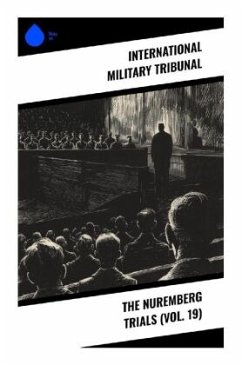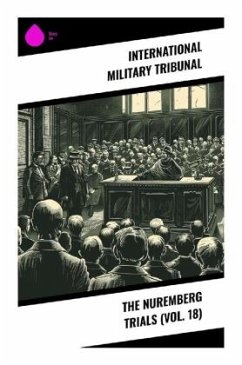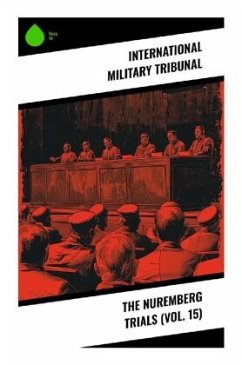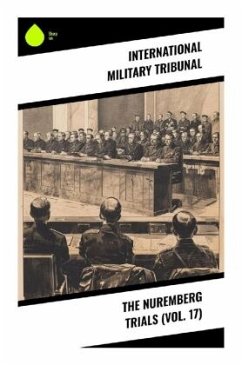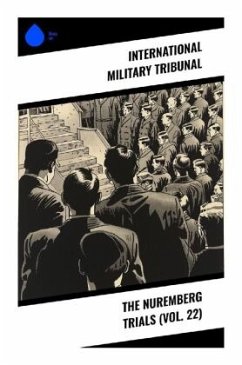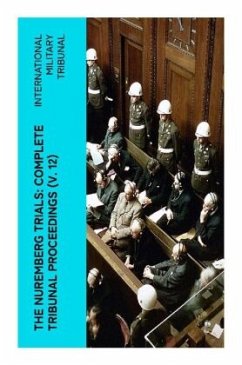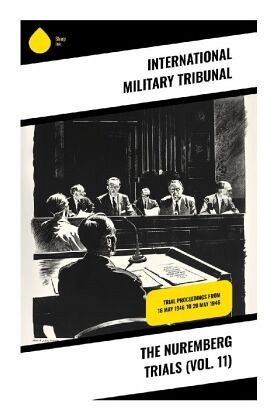
The Nuremberg Trials (Vol. 11)
Trial Proceedings From 16 May 1946 to 28 May 1946
Versandkostenfrei!
Versandfertig in 6-10 Tagen
21,10 €
inkl. MwSt.

PAYBACK Punkte
0 °P sammeln!
The Nuremberg Trials (Vol. 11) stands as a crucial document in the annals of legal history, providing a substantive account of one of the most significant post-World War II tribunals that sought to bring Nazi war criminals to justice. This volume meticulously chronicles the evidence, testimonies, and legal arguments presented during the trials, showcasing a solemn literary style that underscores the gravity of the proceedings. It serves not only as a historical record but also as a reflection on international law's evolution, embodying themes of morality, accountability, and the fight against ...
The Nuremberg Trials (Vol. 11) stands as a crucial document in the annals of legal history, providing a substantive account of one of the most significant post-World War II tribunals that sought to bring Nazi war criminals to justice. This volume meticulously chronicles the evidence, testimonies, and legal arguments presented during the trials, showcasing a solemn literary style that underscores the gravity of the proceedings. It serves not only as a historical record but also as a reflection on international law's evolution, embodying themes of morality, accountability, and the fight against impunity within a context marked by unprecedented atrocities and human suffering. The International Military Tribunal, a coalition of Allied nations, was formed to adjudicate the crimes of the Nazi regime, shaped by the aftermath of the war and the urgent need for a framework for international justice. The tribunal's proceedings provided a blueprint for future trials and significantly influenced modern international law, highlighting the complexities of adjudicating state-sponsored crimes. The collective backgrounds of the judges, prosecutors, and defendants create a rich tapestry of perspectives that informed the proceedings and the legal philosophies that underpin them. This volume is highly recommended for scholars, legal practitioners, and anyone interested in the profound implications of the Nuremberg Trials. It not only illuminates the historical context but also engages with the moral questions surrounding justice in the aftermath of conflict. 'The Nuremberg Trials (Vol. 11)' is essential reading for those who wish to understand how the pursuit of justice can shape the international landscape in the face of egregious violations of human rights.



